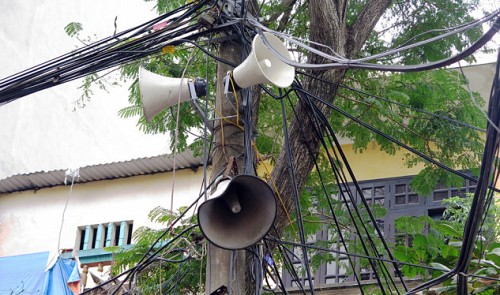Hanoi has opted to keep its network of public loudspeakers, ending a months-long debate over the future of the half-century-old broadcast system.
According to the People’s Committee of Hanoi, public loudspeakers run by its rural districts will remain, while those operated by ward-level administrations will be limited.
In the past, the loudspeakers functioned as an essential medium for authorities to get across important news to residents.
As more modern forms of media such as television and the Internet rose in popularity, the age-old devices, which begin their daily broadcasts with a cock-crow, have been criticized for disturbing locals’ sleep and causing headaches.
In January, Hanoi took a survey asking residents to evaluate the effectiveness of the system in spreading news to local residents.
Unsurprisingly, less than four percent of the respondents said they got their daily news update via the public loudspeakers, with the remaining majority using the Internet, television and newspapers instead.
Nearly 90 percent of the respondents agreed that the loudspeakers were no longer required, and roughly the same number said that the information disseminated by the devices was not useful.
Despite overwhelming support for the removal of public loudspeakers, Hanoi has decided to keep them, suggesting only that numbers be reduced and broadcast content be improved.
According to the city’s plan, each ward will only have between five and ten loudspeakers, installed in suitable locations so as not to disturb locals.
The loudspeaker network will remain intact in rural districts, it said.
The broadcasting devices will continue to offer timely notices and warnings in case of natural disasters and urgent directives from the city and government.
Public loudspeakers will not be installed in areas in proximity to schools, hospitals, high-rises and neighborhoods where elderly residents live.
The municipal Department of Information and Communications will be responsible for the reorganization of public loudspeakers, which will be piloted over a three-month period before permanent adjustments are made.






















































